Thursday, November 1st
| 10:00–11:00 a.m. | "Property Taxes in Oregon: Property Valuations and the Appeal Process," Trevor Jacobson [B Griffitts], Ford Hall, Room 122 Your property tax bill will arrive soon! This presentation will review real estate values and Oregon property tax laws as they pertain to your residential property and assessment problems. Emphasis will be on you, the taxpayer.
| ||
| 11:00 a.m.–12:00 p.m. | "The Story of Human Language, Lecture 5: How Language Changes - Meaning and Order," Video Series [G Adkins], Ford Hall, Room 122 Word meanings drift naturally as connotation changes over time. Word meanings can narrow or broaden. Subject-Verb-Object (SVO) order is most common in modern English, but SVO is actually not the most prevalent sequence among the world’s languages. Languages have been discovered with a complete reversal of the SVO sequence that seems so natural to us. Examples are given to illustrate the variety of sequences that exist. Common word order within a language can also change over time. In Old English it was common to begin a sentence with a verb. Our host for this lecture is Billijean Hill. | ||
| 1:00–3:00 p.m. | "The Importance of Scene," Jennifer Lauck [Lois Rosen], Ford Hall, Room 122 Jennifer Lauck spoke in the Hallie Ford Series on campus this year when the Oregon Book Award nominees gave readings on campus. She's a very lively speaker and experienced teacher. A few years ago, her memoir, Blackbird, was a bestseller. Scene is the most important aspect of good storytelling from creative non-fiction to fiction, and yet how do we render a scene that is interesting, vivid and active? In our time together, Jennifer will provide examples of scenes--good and not so good--and you will learn the elements that make up a scene as well as practice writing a scene for yourself.
|
Tuesday, November 6th
| 10:00 a.m.–12:00 p.m. | "Eavesdropping on the Brain: How Experience Affects Neural Systems Important for Selective Attention," Courtney Stevens [B.Griffitts], Ford Hall, Room 122 The 'cocktail party effect' refers to our ability to focus attention selectively on one set of sounds or sights while ignoring distracting, competing input. In this talk, I will describe the methods cognitive neuroscientists use to study this ability. The talk will emphasize the importance of selective attention during child development, including recent evidence showing both the vulnerability of neural systems important to selective attention in special populations, as well as the capacity for training programs to improve this ability.
|
| 1:00–3:00 p.m. | "Challenges and Opportunities of Ecologically Managed Family Forestlands in the Willamette Valley," Sarah & Ben Deumling [B Griffitts], Ford Hall, Room 122
Sarah Deumling grew up on farm and forest land in the Cascade foothills east of Molalla. She earned a BA in Political Science at Whitman College in Walla Walla and her MAT at Reed College in Portland. Sarah has spent three years teaching and many years as a mother, homemaker, gardener, and farmer. Sarah is a family forest owner; in 1987, Sarah and her husband took over management of the 2000-acre Zena Forest in the Eola Hills. Sarah’s husband died in 1996 and she assumed sole responsibility for forest management of Zena. Zena Forest attained FSC certification in 1998, and remains certified today. Sarah is a member of Northwest Sustainable Timber Growers, Build Local Alliance, Forest Guild, Women Owning Woodlands, and the Farm Bureau. She also participates in Willamette University's sustainability seminar, using Zena Forest as a working example of sustainable forestry. Sarah considers herself, first and foremost, a forest manager in the long-term health and vitality of Oregon's forests. Ben Deumling was born in Germany but grew up in the Zena Forest from age 5, tagging along with his father in the woods. He graduated from Western Mennonite High School and Whitman College with a degree in Environmental Science. He worked for a year in Tillamook at a sawmill and then came home to see what he could do here. Currently, he runs a small sawmill on the forest property. |
Thursday, November 8th
| 10:00 a.m.–12:00 p.m. | "Film, Remembrances, and a Way to Honor the Stories We Hear," Marilyn Johnston [George Adkins], Ford Hall, Room 122 The SPARs (Semper Paratus, Always Ready) were Coast Guard Women Reservists, recruited during WWII so that “men could go to war.” A short documentary, “My Mother Was a Coast Guard SPAR,” was produced by Salem writer, Marilyn Johnston. The film is based on the memories of one of the initial twelve SPAR recruits. It gives some insights into this little-known group of military women, and reveals some discriminatory policies of the time that may surprise us. In addition, Marilyn will give ICL participants the opportunity to do some writing about their own family stories that may need to be confronted or uncovered, and ultimately shared.
—Oregon Poetic Voices |
| 1:00–3:00 p.m. | "Evan Mayday's Good Death (DVD)," Willie Weber and Dan Sewell, Ford Hall, Room 122 Case study of a man's last days of life, and the choices he, his family and physicians make during that time period. After the DVD there will be an open discussion regarding death and dying, living wills, health power of attorney, POLST forms.
|
Tuesday, November 13th
| 10:00–11:00 a.m. | "The Story of Human Language, Lecture 6: How Language Changes - Many Directions," Video Series [G. Adkins], Ford Hall, Room 122 Languages have evolved and differentiated over time through isolation. Different local pronunciations evolve into dialects and eventually separate languages, much like speciation in biology. A prime example is the group of Romance languages that evolved from spoken Latin. Milt Robbins will host this lecture. |
| 11:00 a.m.–12:00 p.m. | "Bangladesh," ICL member Henrietta Griffitts, Ford Hall, Room 122 “Bangladesh: A people formed by the past, challenged by the successes and obstacles in the present and facing a future where they must find ways to adapt and survive.” Henrietta Griffitts
Henrietta Griffitts grew up on a farm in northern Idaho. She got her BS degree at St. Mary’s, Notre Dame, Indiana. It was there she was offered the opportunity to teach in East Pakistan. She spent twelve years in East Pakistan teaching and also earned a Masters Degree in Education at the Dakha University. When she returned to the States she married Bill and they made their home in the San Francisco Bay area. She taught in the elementary schools for thirty years. After retirement Henrietta and Bill moved to Oregon and now reside in Keizer. |
| 1:00–2:10 p.m. (not a misprint) | "Analysis of the 2012 Election," Richard Ellis, Hatfield Professor of Politics, WU [M. Kasoff], Ford Hall, Room 122
|
Thursday, November 15th
| 10:00 a.m.–12:00 p.m. | Great Decisions: “Mexico–Transborder Crime and Governance” [J. Flaming], Ford Hall, Room 122 Mexico’s border with Central America, as well as the border it shares with the U.S., has been a pathway for people, goods, crime and contraband in both directions. How can Mexico address these transborder challenges? What is the future of Mexico’s relations with its northern and southern neighbors? How will Mexico’s foreign relations affect its domestic politics? What role has the U.S. played and what are our responsibilities?
Dr. Strawn’s research to date has focused on development of the Mexican Protest Event Database (MPED), a database of nationwide protest events in Mexico constructed from media records. The overarching goal of this project is to build a database that (a) allows for examination of Mexico protest trends over time at the national level, and (b) can be used to analyze and better understand media coverage- and selection-biases in the Mexican news media. |
| 1:00–3:00 p.m. | "Art History Potpourri," Sharon Wright, Ford Hall, Room 122 Several ICL members will share short art history presentations of their choice. Included will be artists, paintings, architecture and more. • The Raft of the Medusa—Jim Brown • Aaron Bohrod: An American Master of the 20th Century—Kasia Quillinan • The Van de Veldes: Setting the Standard for Marine Illustration—David Engen ...Break... • Hadrian's Gift—Derek Stables • Gregory of Nin—Gary Beck • Rick Bartow—Sharon Wright |
Tuesday, November 20th
| 10:00 a.m.-12:00 p.m. | '"And for this I take Vitamins!" . . . Finding Hope and Humor in Caregiving,' Elaine Sanchez [Jinx Brandt], Ford Hall, Room 122 This "one-woman show" deals with caregiver anger, guilt, depression, and grief, along with dementia-related inappropriate sexual behavior. It is based on her unflinchingly honest and uproariously funny book, Letters from Madelyn, Chronicles of a Caregiver, which has received rave reviews from family and professional caregivers alike. She will also share video clips from CaregiverHelp.com, a new online caregiver support group program she is developing along with her husband Dr. Alex A Sanchez. Her programs are based on real-life caregiving experiences, and although the topics are serious, audiences learn that experiencing negative feelings doesn't make them bad people, and that laughter really is the best medicine.
|
| 1:00–3:00 p.m. | "The Science of Artistry," Dr. Diane Baxter, WOU [S. Holmquist/J. Miller], Ford Hall, Room 122 We have heard often about "the artistry of science", but it is much less common to hear about the science of artistry. Recent discoveries in neuroscience have been fascinating for musicians. Diane's lecture will explore the relationship of the pianist's brain and the body during performance. Here is the first paragraph of her paper. "The Blüthner waits on the stage. The top three octaves of the piano include a fourth string for each note, strings which are never struck directly, but vibrate sympathetically to enhance the overtones of the instrument. It includes over six thousand parts in its Renner keyboard action. Fifteen coats of special lacquer are applied to the soundboard, white spruce with fewer than fifteen rings per inch. This piano is the result of highly developed scientific principles, with physics writ large in its magnificent presence, all so that it can create beauty. Any artist who comes to play this piano must recognize that the performer’s body is a partner to the instrument, another complex creative “tool” upon which the music depends. All pianists want to perform well, to deliver the meaning of the music, and to enjoy the unfolding moments of creation. Just as the instrument received careful attention during its creation, the body requires careful attention to partner successfully with the piano for performances of focus, power, and joy."
|
Thursday, November 22nd
THANKSGIVING DAY NO CLASSES |
Tuesday, November 27th
| 10:00 a.m.–12:00 p.m. | "Géricault and the Romantic Movement in 19th Century Painting," Jim Brown & Derek Stables, Ford Hall, Room 122
|
| 1:00–3:00 p.m. | "Obesity: Causes, Consequences and Treatment," by Raj Nair, MD [P. Rasmussen], Ford Hall, Room 122 Raj Nair, MD will introduce obesity as a significant public health problem, its prevalence, its causes, and discuss current thinking about weight control and regulation. He will define "morbid obesity", and describe the morbidity and mortality related to this. He will talk about both medical treatments and their success/failure. He will descibe the classification of types of bariatric operations, and describe the most common procedures currently performed. He will talk about results of bariatric surgery, both in weight loss and comorbidity resolution. He will finish by talking about therapeutic options on the horizon.
Dr. Nair has been in practice in Salem since 1999, and is affiliated with the Salem Clinic. His current practice includes general, bariatric, thoracic, and laparoscopic surgery. Dr. Nair has graciously made available his PowerPoint presentation for posting on the ICL web site. You can view a PDF version on Obesity, Causes, Consequences and Treatment. (N.B. This is a 9.6 MB file, so broadband internet access is required!) |
Thursday, November 29th
| 10:00 a.m.–12:00 p.m. | "Human Trafficking," Kirstin Heydel, Mid-Valley Women's Crisis Service [B. Griffitts], Ford Hall, Room 122
Review more articles on this subject. Kirstin Heydel, The Youth Services Coordinator for Mid-Valley Women's Crisis Service (MVWCS), has been serving victims and survivors of teen relationship abuse, domestic violence, sexual assault, stalking and human trafficking for almost two years. She provides advocacy to youth staying in MVWCS's shelter, at local schools, and at agencies throughout Marion County, and the State of Oregon. As the Youth Service's Coordinator, Kirstin has trained and provided community education to over 10,000 youth and adults on teen relationship abuse, domestic violence, sexual assault, and human trafficking. She serves on numerous local committees and multidisciplinary teams including the Child Abuse Response Team, Sexual Incidence Response Committee, Child Fatality Review team, and co-facilitates the Marion County Human Trafficking Task Force. She is a first responder to sex trafficking victims in Marion County. In addition, Kirstin serves as an advisory council member for the Attorney General’s Child Abuse Multidisciplinary Intervention (CAMI) Program through the Department of Justice. Kirstin is a Willamette U alumna. |
| 1:00–2:00 p.m. | "Favorite Books," Phil and Erin Hanni, Ford Hall, Room 122 The following members will give brief reports on a favorite book: • Beryl MacDonald: A Lucky Child by Thomas Buergenthal If ICL members would like to purchase any of these books, Tim King in the Willamette Store will order them in and give ICL members a 20% discount. While the books are available at amazon.com, it would be nice for ICL to support Willamette University by patronizing the Willamette Store.* *For new members, the Willamette Store is on the first floor of the Putnam University Center between the Hatfield Library and the Goudy Commons. |
| 2:00–3:00 p.m. | "Contemporary Literature Discussion," Phil and Erin Hanni, Ford Hall, Room 122
|


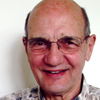 Trevor Jacobson, a former member and chair of the Marion County Board of Property Tax Appeals, will explain the board's role. Problems do arise in assessment and tax valuation. The process of appeal will be described, as well as the Assessor's responsibilities to the taxpayer. You will leave better prepared to understand your new tax bill and ways to resolve related problems.
Trevor Jacobson, a former member and chair of the Marion County Board of Property Tax Appeals, will explain the board's role. Problems do arise in assessment and tax valuation. The process of appeal will be described, as well as the Assessor's responsibilities to the taxpayer. You will leave better prepared to understand your new tax bill and ways to resolve related problems.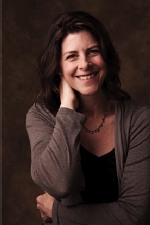
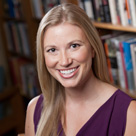 Dr. Courtney Stevens, WU Assistant Professor of Psychology, received her BA in linguistics from Reed College and her MS and PhD in cognitive neuroscience from the University of Oregon. In her research, Dr. Stevens examines typical and atypical brain development using non-invasive neuroimaging techniques (EEG/ERP, fMRI, DTI). She is particularly interested in the neural systems important to selective attention, as well as the role of selective attention on academic foundations, including language and literacy acquisition.
Dr. Courtney Stevens, WU Assistant Professor of Psychology, received her BA in linguistics from Reed College and her MS and PhD in cognitive neuroscience from the University of Oregon. In her research, Dr. Stevens examines typical and atypical brain development using non-invasive neuroimaging techniques (EEG/ERP, fMRI, DTI). She is particularly interested in the neural systems important to selective attention, as well as the role of selective attention on academic foundations, including language and literacy acquisition.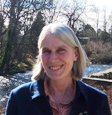 Sarah Deumling and her son
Sarah Deumling and her son 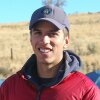 Ben will talk about the social, ecological, economic and political aspects of these challenges and opportunities from both the perspectives of forest management and of the value-added mill production and marketing.
Ben will talk about the social, ecological, economic and political aspects of these challenges and opportunities from both the perspectives of forest management and of the value-added mill production and marketing.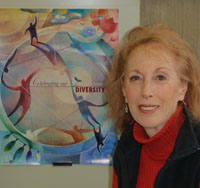 "Marilyn Johnston is a Salem poet and filmmaker. She received an Oregon Literary Arts Fellowship for Writers and was selected as a Fishtrap Fellow. Her poetry has appeared in a wide variety of literary journals and anthologies, including Calyx, Poetry International, Clackamas Literary Review, and Walking Portland's Bridges Using Poetry as a Compass. She is committed to facilitating writing workshops designed for people who have been through battle, regardless of how that is defined. Her chapbook of poems, Red Dust Rising, about a family's journey to heal from War, was nominated for a Pushcart Prize, and her short documentary MY MOTHER WAS A COAST GUARD SPAR, has been screened in film festivals in Oregon, California, and Toronto, Canada, as well as on OPB's 'Oregon Lens.'"
"Marilyn Johnston is a Salem poet and filmmaker. She received an Oregon Literary Arts Fellowship for Writers and was selected as a Fishtrap Fellow. Her poetry has appeared in a wide variety of literary journals and anthologies, including Calyx, Poetry International, Clackamas Literary Review, and Walking Portland's Bridges Using Poetry as a Compass. She is committed to facilitating writing workshops designed for people who have been through battle, regardless of how that is defined. Her chapbook of poems, Red Dust Rising, about a family's journey to heal from War, was nominated for a Pushcart Prize, and her short documentary MY MOTHER WAS A COAST GUARD SPAR, has been screened in film festivals in Oregon, California, and Toronto, Canada, as well as on OPB's 'Oregon Lens.'" Dan Sewell is an ICL member, a retired pediatrician, and member of the Salem Hospital Ethics Committee.
Dan Sewell is an ICL member, a retired pediatrician, and member of the Salem Hospital Ethics Committee.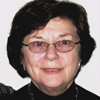 Bangladesh has gone through a birth and a rebirth in the past fifty-five years; first as the country of East Pakistan in 1947 and, then as Bangladesh in 1970. We will look into the history that helped form the people of Bangladesh. We will look at the government and politics they have chosen; how geography and climate influence their everyday lives; how economics, including the microloan program (Grameen Bank), has helped them rise from the depths of poverty; their education system, demographics, health and culture. And, after this, we can only wonder: Will these people live to fulfill their dreams for the future or will they and their land be swallowed by the sea?
Bangladesh has gone through a birth and a rebirth in the past fifty-five years; first as the country of East Pakistan in 1947 and, then as Bangladesh in 1970. We will look into the history that helped form the people of Bangladesh. We will look at the government and politics they have chosen; how geography and climate influence their everyday lives; how economics, including the microloan program (Grameen Bank), has helped them rise from the depths of poverty; their education system, demographics, health and culture. And, after this, we can only wonder: Will these people live to fulfill their dreams for the future or will they and their land be swallowed by the sea?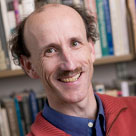 Willamette University Politics Professor Richard Ellis will evaluate November 6 election outcomes.
Willamette University Politics Professor Richard Ellis will evaluate November 6 election outcomes. Willamette professor Kelley Strawn will be our presenter. He is an Associate Professor of Sociology at Willamette University, and the Chair of the Department of Sociology. He received his Ph.D. and M.S. degrees in Sociology from the University of Wisconsin-Madison, an M.A. in Political Science from Boston University, and a B.A. in International Studies from Whitworth College. His areas of expertise within sociology include political sociology and social movements, as well as the sociology of economic change.
Willamette professor Kelley Strawn will be our presenter. He is an Associate Professor of Sociology at Willamette University, and the Chair of the Department of Sociology. He received his Ph.D. and M.S. degrees in Sociology from the University of Wisconsin-Madison, an M.A. in Political Science from Boston University, and a B.A. in International Studies from Whitworth College. His areas of expertise within sociology include political sociology and social movements, as well as the sociology of economic change.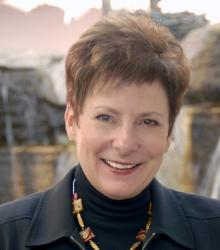 Elaine Sanchez, author of Letters From Madelyn - Chronicles of a Caregiver, has been described as part Erma Bombeck and part Garrison Keillor! Caregiving audiences across America give RAVE reviews in appreciation for the manner in which she deals with the grim reality of aging and illness, proving that grace, humor and faith can transcend tragedy. Based on her own experience of caring for family elders, Elaine developed a passion for helping others cope with the emotional stress of caring for those who can no longer care for themselves. She frequently presents keynotes and workshops at health care and caregiving conferences around the country.
Elaine Sanchez, author of Letters From Madelyn - Chronicles of a Caregiver, has been described as part Erma Bombeck and part Garrison Keillor! Caregiving audiences across America give RAVE reviews in appreciation for the manner in which she deals with the grim reality of aging and illness, proving that grace, humor and faith can transcend tragedy. Based on her own experience of caring for family elders, Elaine developed a passion for helping others cope with the emotional stress of caring for those who can no longer care for themselves. She frequently presents keynotes and workshops at health care and caregiving conferences around the country. 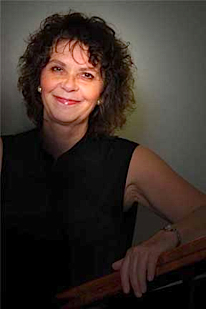 Pianist Diane Baxter, DMA, NCTM, is currently Professor of Music and Head of the Music Department at Western Oregon University where she has received the Faculty Honors Award for Outstanding Creativity (1994) and the Mario and Alma Pastega Award for Excellence in Teaching (2005). She is a member of the Honors Faculty and regularly teaches courses in Ethnomusicology, Women in Music, Accompanying, and Studio Piano. Diane has researched the music of the Ainu on Hokkaido in Japan, and the official music of the Virgin Islands (quelbe) in St. Thomas and St. John. Diane adjudicates for piano competitions and festivals around the northwest, and is the Principal Keyboard Artist for the Newport Symphony Orchestra. She has appeared as soloist with the Cascade Festival of Music Orchestra, the Western Oregon Symphony, the Newport Symphony Orchestra, and the Oregon Mozart Players. Diane is a founding member of TonePoem, a trio dedicated to two-piano literature and poetry. In addition, Diane performs with the American Metropole Orchestra. Diane's solo piano CD,
Pianist Diane Baxter, DMA, NCTM, is currently Professor of Music and Head of the Music Department at Western Oregon University where she has received the Faculty Honors Award for Outstanding Creativity (1994) and the Mario and Alma Pastega Award for Excellence in Teaching (2005). She is a member of the Honors Faculty and regularly teaches courses in Ethnomusicology, Women in Music, Accompanying, and Studio Piano. Diane has researched the music of the Ainu on Hokkaido in Japan, and the official music of the Virgin Islands (quelbe) in St. Thomas and St. John. Diane adjudicates for piano competitions and festivals around the northwest, and is the Principal Keyboard Artist for the Newport Symphony Orchestra. She has appeared as soloist with the Cascade Festival of Music Orchestra, the Western Oregon Symphony, the Newport Symphony Orchestra, and the Oregon Mozart Players. Diane is a founding member of TonePoem, a trio dedicated to two-piano literature and poetry. In addition, Diane performs with the American Metropole Orchestra. Diane's solo piano CD, 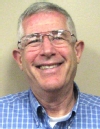 Romanticism is an important artistic movement of the early 19th Century, not only in painting, but also in literature and music. Jim Brown will discuss definitions of Romanticism and summarize the contributions of Théodore Géricault, one of the earliest French Romantic painters, with particular emphasis on Géricault's masterwork, "The Raft of the Medusa."
Romanticism is an important artistic movement of the early 19th Century, not only in painting, but also in literature and music. Jim Brown will discuss definitions of Romanticism and summarize the contributions of Théodore Géricault, one of the earliest French Romantic painters, with particular emphasis on Géricault's masterwork, "The Raft of the Medusa."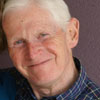 After the break, Derek Stables will play part of an excellent video which illustrates selected works by Eugène Delacroix, Francisco de Goya, John Constable, J.M.W.Turner, and Caspar David Friedrich. He will present a few examples of the Romantic Movement in other countries. Both presenters will then respond to questions and discussion from the audience.
After the break, Derek Stables will play part of an excellent video which illustrates selected works by Eugène Delacroix, Francisco de Goya, John Constable, J.M.W.Turner, and Caspar David Friedrich. He will present a few examples of the Romantic Movement in other countries. Both presenters will then respond to questions and discussion from the audience.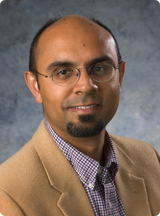 Dr. Nair has been involved in the development of the Bariatric Surgery Center in Salem since its conception and has been the medical director of the program since 2008. He is certified by the American Board of Surgery and is a fellow of both the American College of Surgeons and the American Society for Metabolic and Bariatric Surgery (ASMBS). He completed his undergraduate education at Stanford University in California, followed by medical school at the University of Arizona, where he stayed on to do his general surgery residency. During his residency, Dr. Nair completed a two-year research fellowship in transplantation immunology at Stanford University, where he gained an appreciation for the multi-disciplinary approach to evaluating patients undergoing complex procedures.
Dr. Nair has been involved in the development of the Bariatric Surgery Center in Salem since its conception and has been the medical director of the program since 2008. He is certified by the American Board of Surgery and is a fellow of both the American College of Surgeons and the American Society for Metabolic and Bariatric Surgery (ASMBS). He completed his undergraduate education at Stanford University in California, followed by medical school at the University of Arizona, where he stayed on to do his general surgery residency. During his residency, Dr. Nair completed a two-year research fellowship in transplantation immunology at Stanford University, where he gained an appreciation for the multi-disciplinary approach to evaluating patients undergoing complex procedures.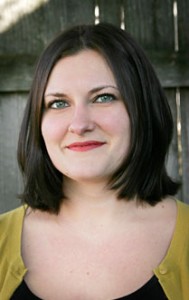 Our speaker is Kirstin Heydel of the Mid-Valley Women's Crisis Service. Human trafficking is a form of modern slavery and occurs in Oregon. Adults and youth are being exploited by pimps, traffickers and Johns all across Oregon and throughout the United States. Average age of entry into prostitution or pornography is twelve. Oregon has a large sex industry which creates a profitable environment for traffickers. This session will inform individuals how trafficking affects Oregonians and what tools the community can use to promote change.
Our speaker is Kirstin Heydel of the Mid-Valley Women's Crisis Service. Human trafficking is a form of modern slavery and occurs in Oregon. Adults and youth are being exploited by pimps, traffickers and Johns all across Oregon and throughout the United States. Average age of entry into prostitution or pornography is twelve. Oregon has a large sex industry which creates a profitable environment for traffickers. This session will inform individuals how trafficking affects Oregonians and what tools the community can use to promote change. Sherman Alexie is a preeminent Native American poet, novelist, performer and filmmaker. He has garnered high praise for his poems and short stories of contemporary Native American reservation life, among them The Business of Fancydancing (1992), The Lone Ranger and Tonto Fist Fight in Heaven (1993), which won a PEN/Hemingway Award, and Smoke Signals (1998), a critically acclaimed movie based on one of Alexie’s short stories and for which he co-wrote the screenplay. An acclaimed performer of his own work, Alexie held the World Heavyweight Poetry title for four years. He continues to perform many of his poems at poetry slams, festivals, and other venues, and has received praise for the energy and emotion he brings to his work.
Sherman Alexie is a preeminent Native American poet, novelist, performer and filmmaker. He has garnered high praise for his poems and short stories of contemporary Native American reservation life, among them The Business of Fancydancing (1992), The Lone Ranger and Tonto Fist Fight in Heaven (1993), which won a PEN/Hemingway Award, and Smoke Signals (1998), a critically acclaimed movie based on one of Alexie’s short stories and for which he co-wrote the screenplay. An acclaimed performer of his own work, Alexie held the World Heavyweight Poetry title for four years. He continues to perform many of his poems at poetry slams, festivals, and other venues, and has received praise for the energy and emotion he brings to his work.